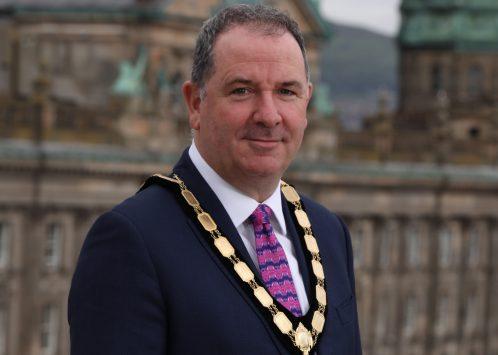When Chancellor Rishi Sunak delivers his Spring Statement this week, businesses in Northern Ireland and across the UK will need to see bold and decisive action to address what is now an escalating ‘cost of doing business’ crisis.
The Spring Statement will take place against a backdrop of soaring uncertainty surrounding both the UK and global economy, with global and domestic headwinds mounting following the invasion of Ukraine. Firms are reporting crippling burdens from a myriad of cost pressures including rising raw material costs, soaring energy bills and other overheads.
Coming so soon after a covid-induced squeeze on cashflow and investment plans, the cumulative effect of rising raw material costs, soaring energy bills and other overheads is causing many firms to take cost reduction measures. This is already weighing down on their ability to invest, recruit and grow.
So a business-as-usual approach from the Chancellor tomorrow (Wednesday) simply won’t cut it. Rather, he must act decisively now, to protect the UK from a renewed economic crisis.
Businesses strongly oppose a rise in national insurance contributions, which would be a drag anchor on the economy, landing significant costs on firms when they are already facing a raft of other price pressures. The ongoing energy crisis is having a significant impact on consumers and businesses who are facing a sustained period of soaring prices. Businesses have been hit by steep rises in their energy bills, with further increases likely.
The latest economic forecast published by British Chambers of Commerce projects that the war in Ukraine has increased the risk of a recession in the UK, by exacerbating the already acute inflationary squeeze on consumers and businesses and derailing the supply of commodities to key sectors of the economy. Raising taxes at this time would weaken the UK’s growth prospects further, by undermining confidence and diminishing households’ and firms’ finances.
Rather, the government must now fortify our economy for what will likely be some gruelling weeks and months ahead. It must prove it is serious about doing whatever it takes to support companies through these domestic and global economic shocks.
Mr Sunak’s Statement will be an important indicator for the level of support to come. Any measures he introduces must shield firms from the worst of the costs’ crisis, giving them headroom to keep a lid on prices, protect jobs and make investment that is so vital to sustaining our economic prospects.
At NI Chamber, we have called for the introduction of two key measures. We believe it is necessary to delay the impending National Insurance rise by one year. This will give firms much-needed financial headroom to weather this unprecedented surge in costs and crucially, help power the recovery. We have also stressed the need for a moratorium, for the life of this parliament, on all policy measures that increase business costs, including no new business taxes or added regulatory burdens.
Over the past two years, the level of government intervention for business and the economy has necessarily been significant. Until now, Covid-support schemes have helped protect jobs by shielding many firms from the worst effects of the pandemic and more recently, our recovery has been encouraging. We can’t afford to start reversing that momentum now.


